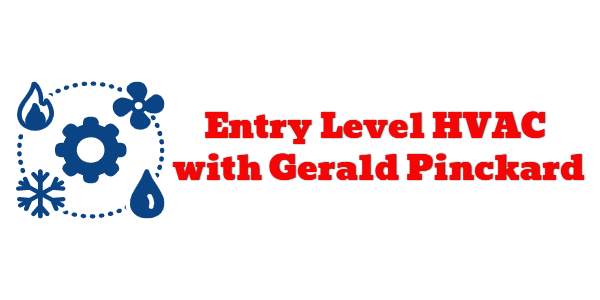
When it comes to maintaining your organization’s HVAC equipment, do you know:
How much you spend on unnecessary service calls?
or
How much a well-meaning mistake will cost you?
A service call with the standard fee for a minimum ½ hour of labor can exceed $100.00 per visit, plus parts and materials.
A single compressor change out can cost $2,000.00 to $3,000.00 – or more.
A couple of other essential questions to consider when it comes to protecting your organization’s investment in HVAC equipment (to say nothing of the comfort of all who work there):
- Who on your staff “used to work for an air conditioning company” but in reality was not a trained tech, but more likely a helper or sheet-metal installer?
- Are you asking your staff to perform tasks for which they are unqualified?
- How much could you save if your maintenance staff up-leveled their abilities with the specialized skills of someone who has completed Entry Level HVAC Training?
To answer that question, here’s just one example of savings possible when maintenance personnel know how to avoid costly mistakes and take the correct actions in addressing HVAC problems.
 Apartment #36 was not cooling. An untrained, well-meaning member of maintenance staff added Freon. He mistakenly believed the pressure should read about 70psig.
Apartment #36 was not cooling. An untrained, well-meaning member of maintenance staff added Freon. He mistakenly believed the pressure should read about 70psig.
It was an expensive mistake.
Turns out the real problem was a dirty indoor coil. The result of the maintenance employees action was an overcharged system that slugged and killed the compressor.
Instead of saving his employer a service call, the end cost was that of a service call PLUS the cost of replacing a compressor.
Result? Over $2,000.00 of unnecessary expense!
Now consider this. Had this maintenance employee learned from my training class, he would have known:
- How to diagnose a faulty air-conditioner.
- How to avoid making the matter worse.
- What action was needed to repair the system.
In the case of the well-intentioned maintenance employee from the case study above, if he had had the necessary training and skills, the cost in that scenario would have been a fraction of the $2000 required to get the system running again.
Employee’s time (est.1 to 2 hours):
Coil cleaner:
Total cost if handled correctly by employee (rounded):
$40.00
$ 9.00
$50.00
What does this translate to in terms of savings for you and your organization?
In the case study above where the employee mistake cost $2000, the investment in my two-day training would yield immediate savings. Here’s how that breaks down:
Program fee for Entry Level HVAC Training, per attendee:
Cost for correct repair by employee (from example above):
Total cost (rounded):
$197.00
$ 50.00
$250.00
That’s $250 instead of $2000 – for just one service call.
Will this information-packed 2-day course turn your maintenance staff into certified an HVAC technician? No. But, as you can see from the case study: It is very cost effective and can provide immediate benefits to your organization, including:
- Reduction in costly mistakes by well-meaning maintenance personnel.
- Potential reduction in equipment down-time.
- Maintenance personnel who can interact more effectively with your HVAC technician, in relaying system symptoms and actions taken prior to calling the tech.
What your maintenance staff will get in Entry Level HVAC Training with Gerald Pinckard (check out the course outline PDF by clicking here):
- Two (2) days of intensive training from a master contractor with:
- 40 years of experience in the HVAC industry.
- Commercial Refrigeration instructor with NARK 2015.
- LSU Fire service Instructor certified.
- An instruction notebook to be used as a reference manual.
- Free downloadable PDFs of reference materials useful to electricians and HVAC technicians.
- Lunch both days.
Firefighter Gerald Pinckard was on the Desoto Fire District #9 Fire Department for 17 years, and was promoted to be our Training Officer for 6 of those, due to his knowledge and training ability. Gerald performed his duties as our Training Officer in a very professional manner, and was a great help in our success to achieve a better Fire Rating from the Property Insurance Association of Louisiana (PIAL).
When and Where?
November 15th & 16th, 2019 from 8:30AM – 4:30 PM
Durand Center, Ginny Hammerschimt Room
303 N. Main St
Harrison, AR
Gerald has a very well rounded teaching method, He has taught me a lot in the ways of mechanical and electrical theory, and thermodynamics. He is an excellent instructor.
Reserve your place now by clicking on the secure payment button below. You will receive an email confirming your registration. Included in your confirmation email will also be a reminder of the date, time and location for this training.
